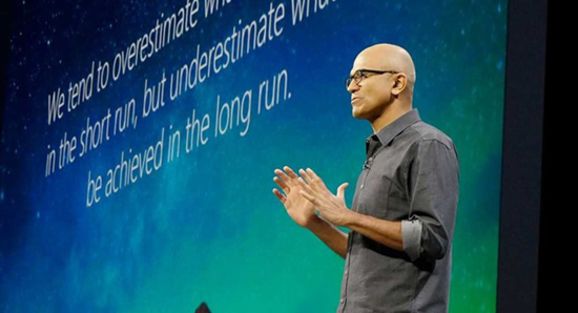Big announcements on Machine Learning from Microsoft’s Ignite conference

The Ignite 2017 conference is just over, and as usual Microsoft had saved up some major announcements. As part of the Enabling Digital Transformation program, it has been focusing on Artificial Intelligence (AI) and Machine Learning (ML) in a big way over the last couple of years, and has stepped it up again this year.
It’s impossible to cover everything in a single article, but here are some of the highlights announced last week.
Azure Machine Learning suite
Microsoft is offering exciting new functionality within Azure Machine Learning, with the release of three capabilities:
- AML Workbench, a desktop client for either Windows or Mac to facilitate data preparation and analytic model development
- AML Experimentation service, to help data scientists quickly test their ideas with big data and huge compute power
- AML Model Management service, to host and control the models you develop
- Combined, these services provide an innovative new environment to develop machine learning and data science models, integrating a range of popular languages such as
- Python, R, CNTK and TensorFlow with a wide range of compute environments such as GPU or Apache Spark.
Azure ML Models as Excel Functions (upcoming preview)
To date, Azure ML has integrated with Excel through an Office Add-in, which already provides a pretty good interface for adding cloud-based machine learning into your spreadsheets. From the demos shown at Ignite though, changes in Excel should make this a lot more seamless in a couple of months – Machine Learning models published within your organization will be available directly as standard Excel functions ready for everyone in the organization to make easy use of.
SQL Server 2017 available now!
In SQL Server 2016, Microsoft added the ability to run analytics in your database by including R integration. The biggest addition in this latest version is the option to also run Python scripts in-database. Whether your models are written in R or Python, you can bring the analysis closer to the data, offering improvements in both performance and security.
The standalone version of the Machine Learning Server now also supports both Python and R, including the ability to publish models as web services, making it easier to embed advanced analytics into the applications you use in your business every day.
R support in Azure SQL Database
With data in the cloud, the time taken to download large datasets means running analysis on your local machine can be frustrating. Running the analysis on cloud-based VMs is one way around this, but you can now go one better as Microsoft offer R support in Azure SQL Database. Similar to what’s available in on-prem SQL Server, you can run the analysis remotely using your usual development tools, or place the R script in a SQL stored procedure. The results are then easy to consume in the front-end tool of your choice.
Other announcements at Ignite include Batch AI Training. This allows data scientists to deploy models in Docker containers and run them across hundreds of GPUs, or thousands of cores. Also, the new Geo AI Virtual Machine offers a combination of technologies designed to make geospatial analysis (both visualization and analytics) easier than ever before.
If these topics are of interest to you, why not join us in London on 19th October for our Business Intelligence & Analytics Update – we’ll be discussing the latest industry trends and hosting a session on embedding AI and ML in business processes. Later in the year, we will be featuring these technologies in a webcast.

